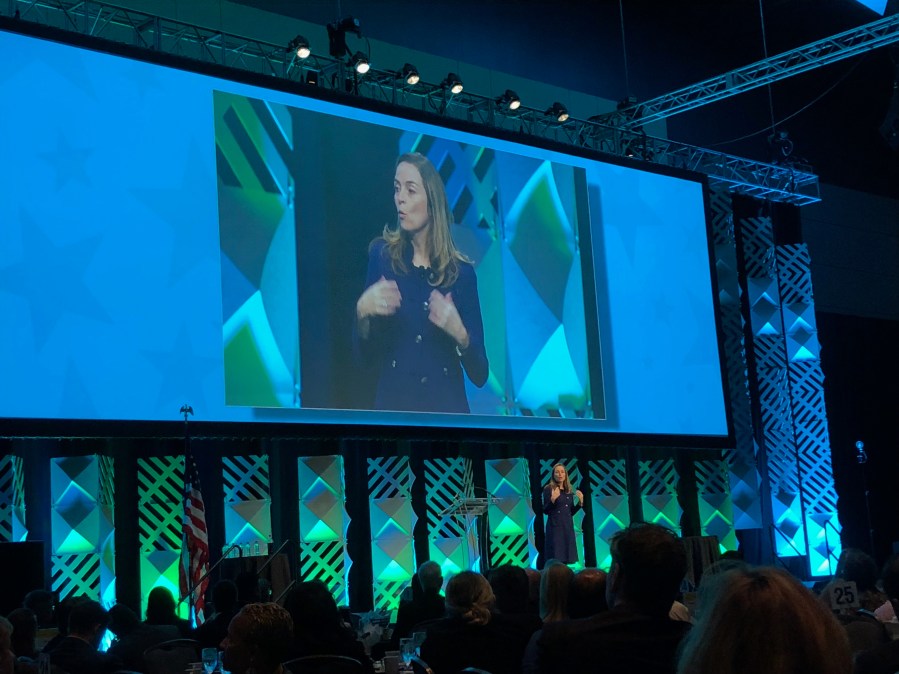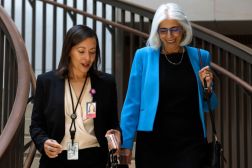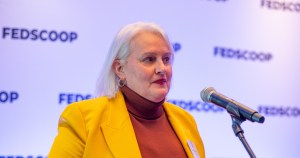Weichert says federal employees, data will fuel transformation

Though federal agencies are still actively recruiting young talent to tackle the technology challenges of the future, Margaret Weichert says experience tells her that it’s easier to work with the assets the government already has.
Speaking at the 2018 ACT-IAC Imagine Nation ELC conference Monday, the former businesswoman touted the White House’s efforts to help retain and reskill the federal workforce as a key component of its drive to modernize the government’s IT infrastructure.
Weichert — the deputy director for management at the Office of Management and Budget as well as the new acting director of the Office of Personnel Management — said that though OMB’s government reorganization plans initially called for a reshaping in the federal workforce that would be matched by automation technology, that doesn’t mean the White House is looking to jettison the expertise that makes government work.
“What we discovered when we actually went back and looked at the data was we need the people here in government, particularly the people who have the desire to be here,” she said.
So Weichert and OMB are looking to leverage that talent through efforts like the Government Effectiveness Advanced Research (GEAR) Center initiative, which will incorporate insights from both the private sector and academia, to help solve challenges like how to provide an experienced workforce new skills while keeping its invaluable insights.
“If I need data architects, data scientists and cyber experts, how do I get those,” she said. “Well, private sector experience suggests that it’s always cheaper and more effective to train your own. Acquisition of new talent is expensive and risky.”
The administration is looking to reinvest in current federal employees that may have an aptitude for the technology roles that are in short supply. But to find and reskill those employees will require the government to better partner with both the private and academic sectors to identify the tools that can help. Weichert said she’s hoping to engage both through initiatives like the GEAR Center.
“We need greater scalability. We need more commercialization of the ability to get people new skills. So we are looking for ideas,” she said. “Whether it’s online courses, whether it’s gamification, whether it’s video-learning or other apprentice-type skill programs, we are looking for innovative ideas with proven evidence-based backing to say, ‘How do we reskill our population?’”
She didn’t rule out the need for regulatory or legislative changes to help kickstart at least some of those reskilling efforts; but she said the inclusion of academic professionals in the decision-making should help develop a bipartisan tenor to the test-and-learn environment the GEAR is looking to craft.
Building those reskilling efforts will require new and significant data management investment by the government, but Weichert thinks it can be funded by leveraging federal data itself as an asset for partnership with companies that can use it to innovate.
“That’s a place where we can solve the biggest problem we have, which is fundamentally our fiscal challenges,” she said. “The challenges of entitlements, representing 56 percent of our total spend, and debt service — another 7 percent — that big spend is crowding out discretionary spending. It’s crowding out investments in IT. To solve that problem, we need to grow the pie. We need to grow the overall economy and data actually has the promise to do that.”
Citing the successes of apps like Pokémon Go, Zillow and Trulia — all of which use federally collected data sets — Weichert said the government can utilize public-private partnerships to spur the growth and investment it needs to transform the federal infrastructure.
“All of these things are sparks of innovation coming from the private sector when the government does what we are good at, which is bringing things together, providing a point of focus,” she said. “Providing a point of centralization.”






